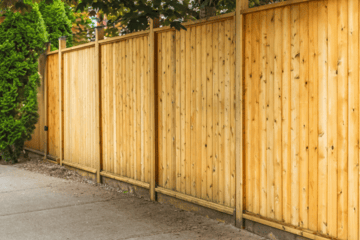- Fire
- Break-ins
- Flooding
- Storms
- Heave and subsidence
- Falling trees
Do I need home insurance if I have a new build?
It’s not a legal requirement, but most mortgage providers will insist you have home insurance in place, even on a new build.
Even if your provider doesn’t, it’s still a good idea to insure your new home. That could be with buildings insurance to cover its physical structure, or contents insurance to cover the personal possessions you keep inside.
And there’s good reason for this.
Most new builds come with an NHBC guarantee. This works a bit like a warranty and covers your home for around 10 years.
What is the NHBC Buildmark guarantee?
For the first 2 years, anything that goes wrong as a result of poor workmanship must be fixed by your builder. After those first 2 years, and up to year 10, the NHBC repairs any further structural issues your home faces as a result of a poor build. This includes issues with the:
- Roof
- Walls
- Staircases
- Floor
- Windows
This is good news if you own a new build, but even with a Buildmark guarantee in place, you aren't protected against:
This is where home insurance comes in useful. It allows you to claim for issues with your house that aren’t covered by the Buildmark guarantee.
What does home insurance cover?
Whether you're insuring a new build home or any other type of property, there are 2 main types of home insurance: buildings insurance and contents insurance.
Buildings insurance covers the physical structure of your home, as well as fixtures like fitted kitchens. Whereas contents insurance covers the cost of repairing or replacing your possessions if they're damaged or stolen.
How much is home insurance for a newer home?
Average annual cost of home insurance for newer homes*:
Combined home insurance
£142
Buildings insurance
£106
Contents insurance
£51
*Average cost for a house built after 2020. Based on Confused.com data, September - November 2025
It costs around £142* to insure a home built after 2020. This is cheaper than the average across houses of all ages, which sits at £173*.
There are a few reasons why insurance is cheaper for newer properties:
They tend to be less expensive to repair than older homes, as they’re built with modern building techniques and materials.
They’re newer so they’ve suffered from less wear and tear, and have fewer of the structural issues that can affect older homes.
They tend to be simpler in design, with fewer non-standard features you may find on older homes like thatched rooves or timber frames. These come with added risk, can be expensive to repair and are difficult to maintain.
They tend to be more secure, and are more likely to be fitted with locks meeting the British Standards Institution's latest standards.
*Based on Confused.com data, September - November 2025
How can I get cheaper home insurance?
Even though home insurance is already relatively cheap for new build houses, there are ways to bring your costs down even further.
Buy a combined policy
If you need both home and contents insurance, getting a combined policy could be a quick way to save. According to our data*, buildings insurance costs £104 on average for a new home, and contents insurance costs an average of £51. A combined policy costs an average of £142.
Change your excess
This is the amount you agree to pay towards the cost of a claim. Most of our customers choose to pay an excess of £250 - and with good reason. Those paying £250 saved an average of 9% on their contents insurance*, compared to those who chose to pay no excess.
Don't over insure yourself
Getting the right amount of cover is crucial. Too little and your insurance won’t pay out enough to replace what you’ve lost. Too much and you'll pay more than you need to. Use our contents calculator to find out exactly how much cover you need.
Pay annually
Paying for your cover in one lump sum is a quick way to save, as insurers charge more to split your insurance costs into monthly payments.
Limit your policy add-ons
Things like accidental damage cover can be a good idea if you want to make sure your insurance covers you for all eventualities. But add-ons come at a cost, and choosing extras that you don’t actually need can lead to unnecessarily high costs. Think about what policy extras you need before buying.
Based on Confused.com data, September - November 2025
How much do I need to insure my home for?
Average contents insured is between:
£45,000-£50,000
*Based on Confused.com data for a combined policy, September - November 2025
If you’re looking at buildings insurance
The amount of cover you need is based on the rebuild cost of your home. This is how much it would cost to rebuild your home from scratch. It’s usually less than the value of your home, as what you pay for a house depends on more than just how much it cost to build.
We can help you estimate your rebuild cost when you get a quote.
If you’re looking at contents insurance
You need enough cover to repair or replace all of your possessions. To do this, you’ll need to work out the total value of everything you own. You’ll also want to ensure you don’t get too much cover, otherwise you could be paying for insurance you don’t actually need.
The average amount of cover our customers get is between £45,000-£50,000*. But our useful contents insurance calculator can help you figure out exactly how much contents cover you need.







